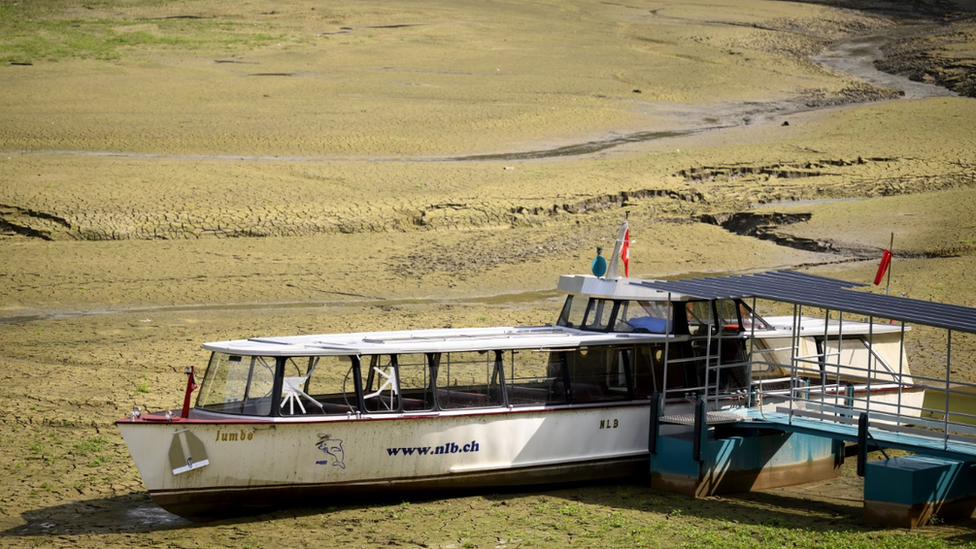Devon seeing a boom in dragonfly populations, expert says
- Published
An expert said there were nearly three times more sightings of the emperor dragonfly than in an average year
Severe drought in Europe has caused an explosion in migrant dragonfly populations in Devon, an expert says.
Dave Smallshire, the Devon recorder with the British Dragonfly Society, said recent warm weather had made the county an "escape zone" for migrating dragonflies.
He said there were nearly three times more sightings of the insect in the county than an average year.
"We are undoubtedly getting things that are fleeing," he said.
"They are looking for a climate that is suitable to them and we have had the most wonderful four weeks or so of hot, sunny and dry weather with light winds and that is absolutely perfect for the adult dragonflies."
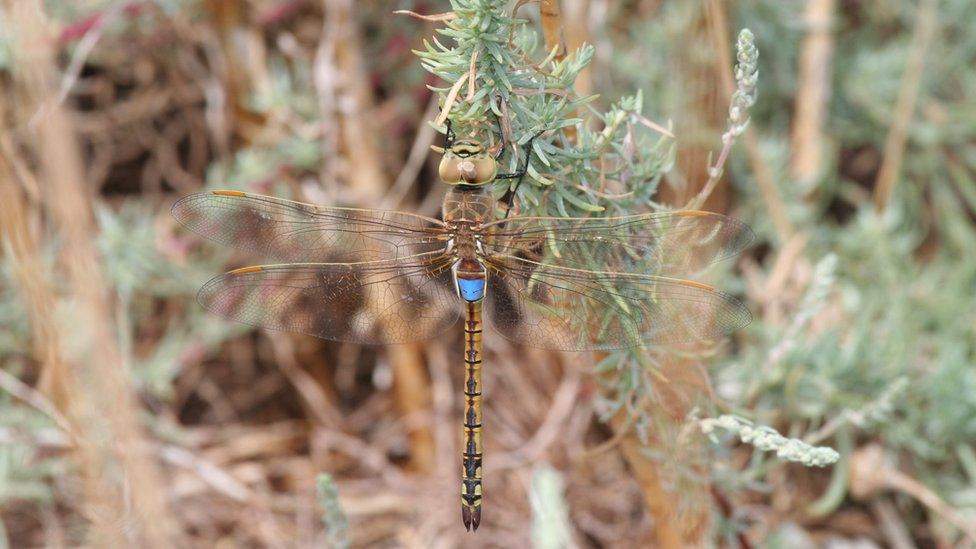
The vagrant emperor dragonfly could have migrated from as far south as the Sahara
Mr Smallshire, from Chudleigh, said severe droughts in the Mediterranean had dried out the wetlands in which dragonflies live, forcing them north.
Easterly and north-easterly winds have then dispersed them in the direction of southern England, he added.
Mr Smallshire said the vagrant emperor species of dragonfly could be migrating from as far south as the Sahara.
"I would say we are an escape zone," he said.
"We're a degree warmer than we were 50 years ago and that makes a big difference if you're a dragonfly."
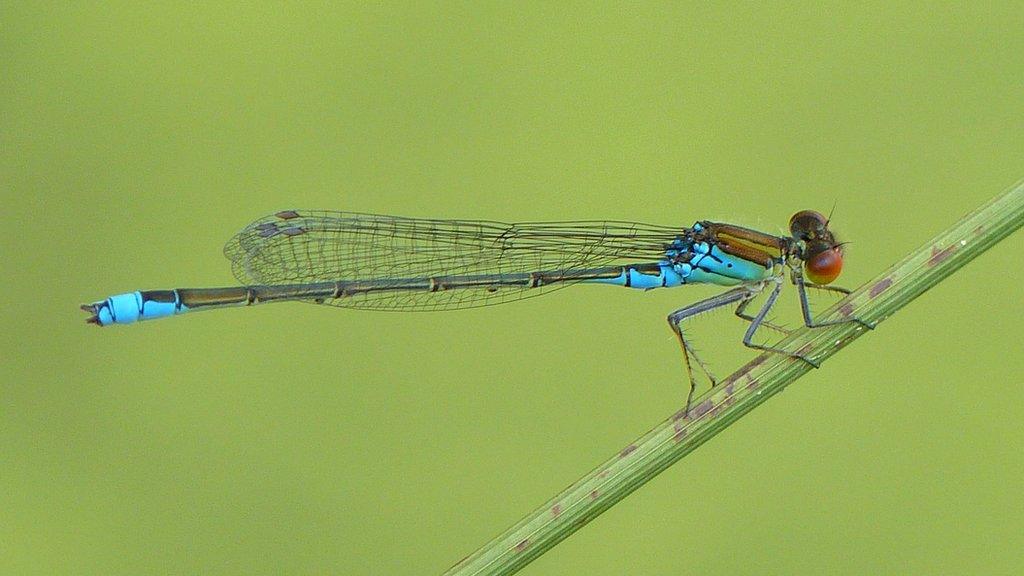
Small red-eyed damselfly: Devon has about 30 species of dragonflies and damselflies
'Juicy protein packs'
The odonatologist said the boom in dragonflies was good news for some species of birds that have struggled to find food.
"One of the reasons house sparrows have been doing very badly in the last decade in Britain is the chicks have been starving - they do not have enough insect food to eat," he said.
"Dragonflies are big, juicy protein packs."
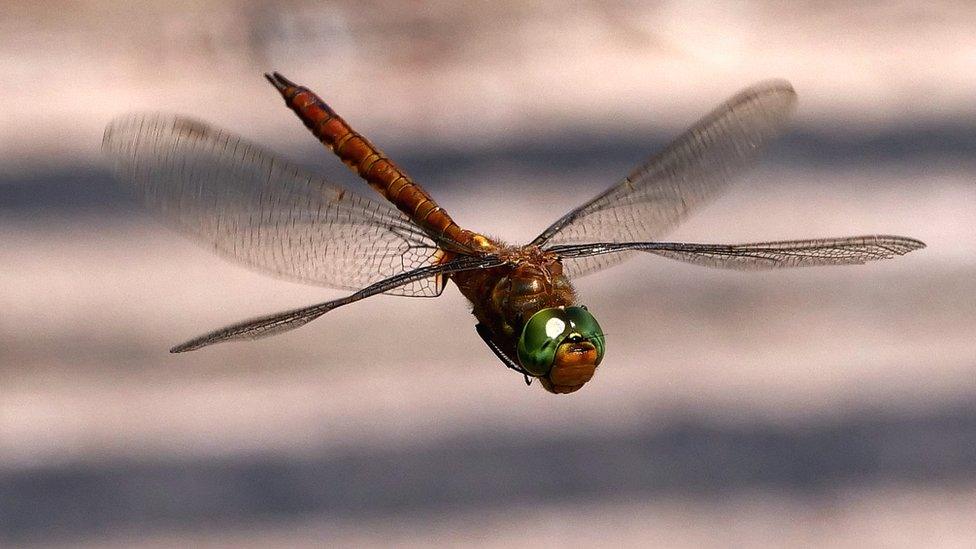
Norfolk hawker dragonfly: Mr Smallshire said the waterways relied on by the insects were under threat
The county has about 30 species of dragonflies and damselflies - none of which will survive the winter, Mr Smallshire said.
Dragonflies spend most of their lives underwater but after emerging as adults, they can survive for as long as two to three months.
Mr Smallshire added that recent hot weather that brought migrant dragonflies to UK in the first place may also eventually cause wetlands to dry out here.
He said: "Ponds and streams, and rivers in some cases, are under threat."
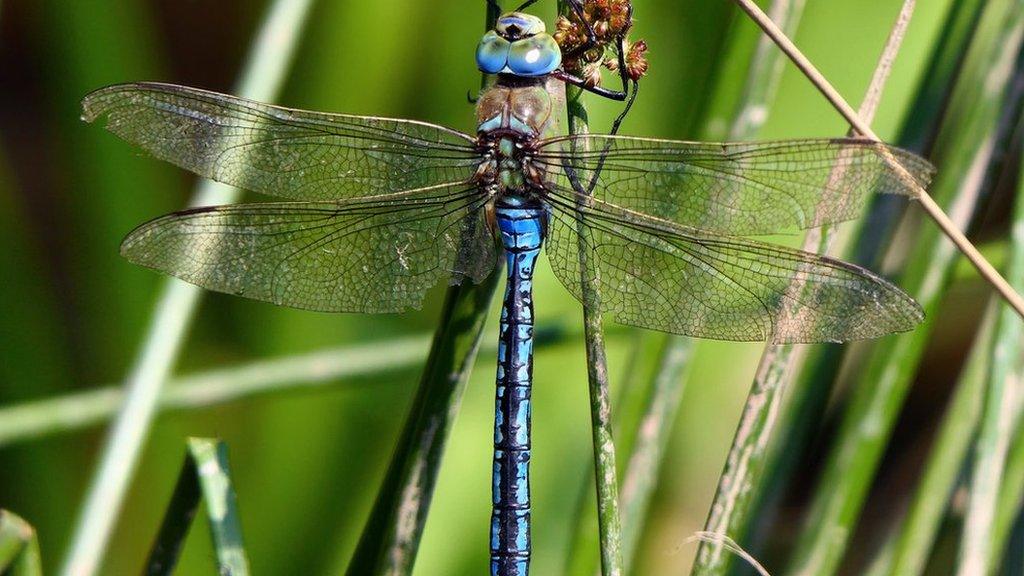
Emperor dragonflies have been attracted to the UK by the warm weather
Additional reporting by PA Media

Follow BBC News South West on Twitter, external, Facebook, external and Instagram, external. Send your story ideas to spotlight@bbc.co.uk.
- Published17 June 2023
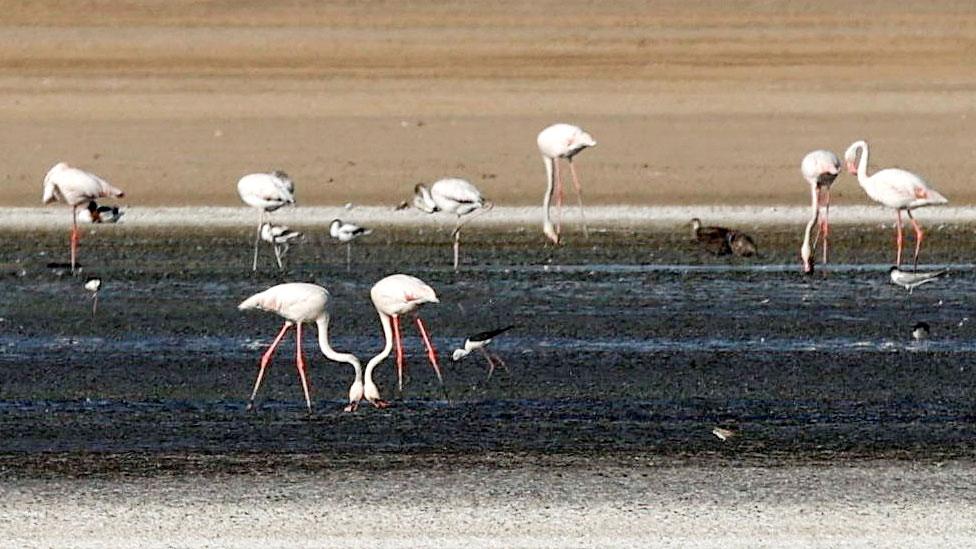
- Published7 September 2021
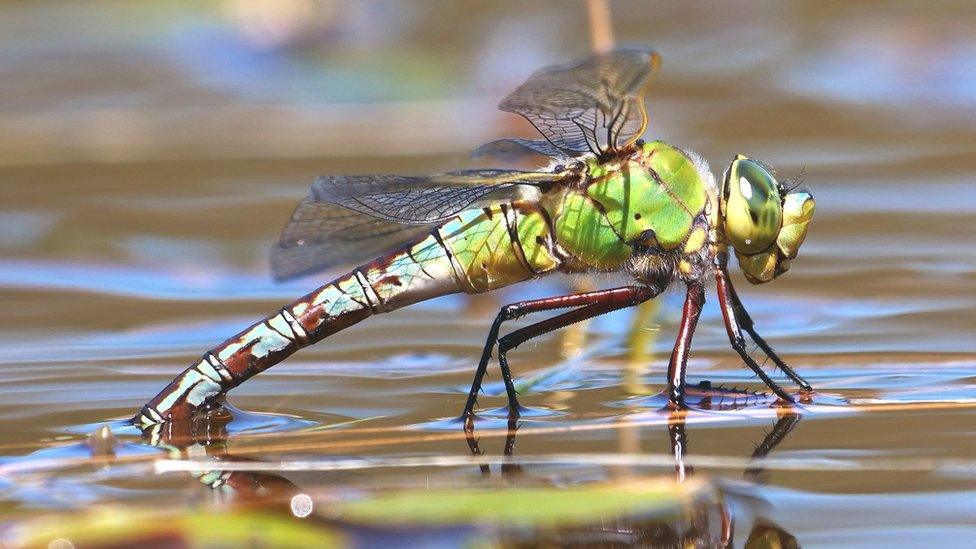
- Published24 May 2023
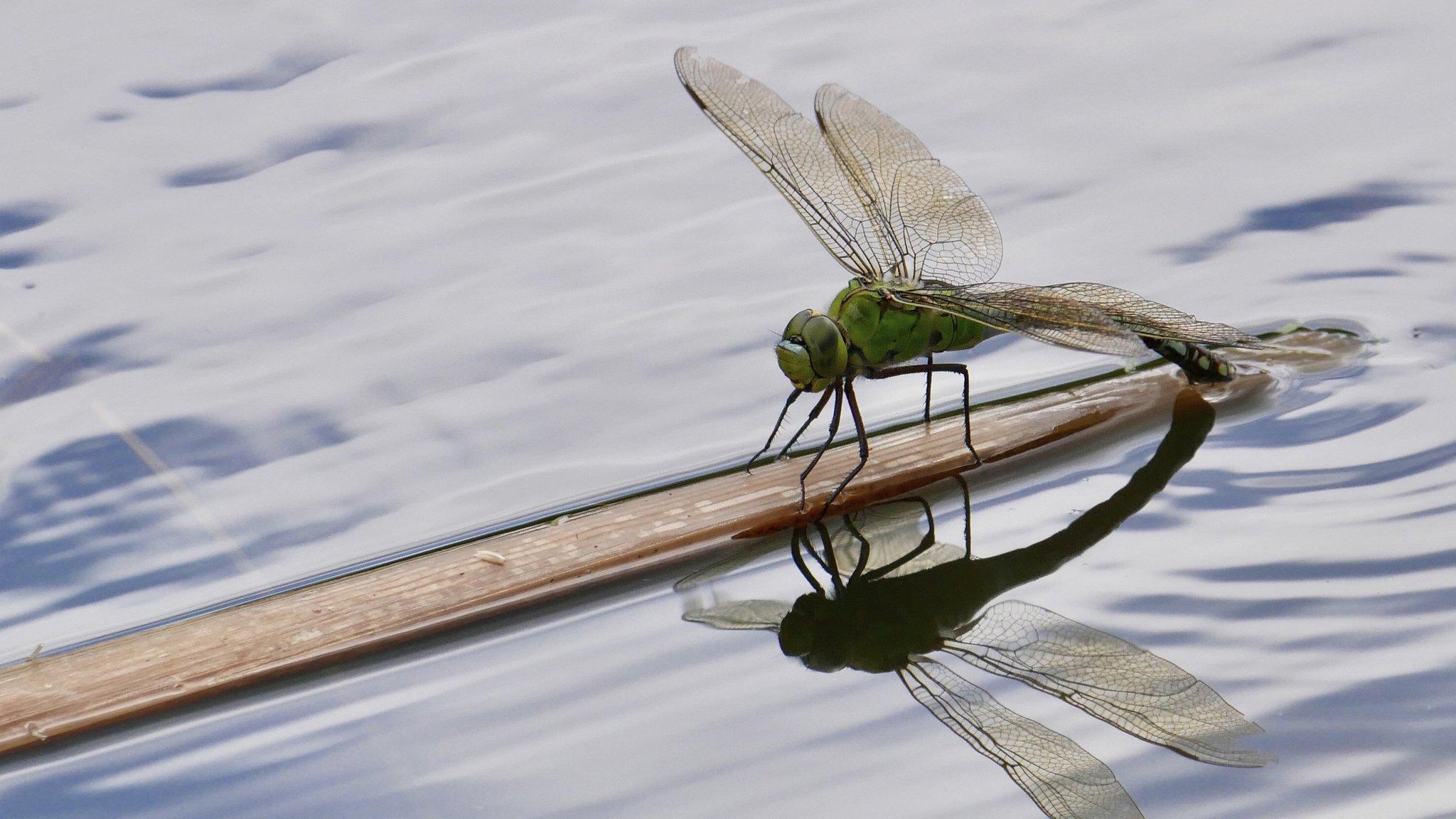
- Published23 August 2022
